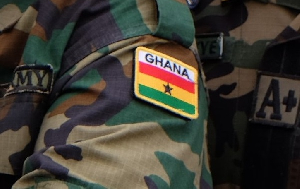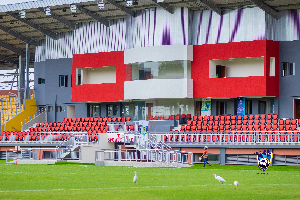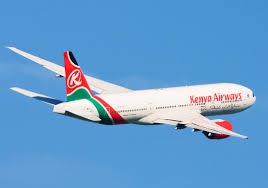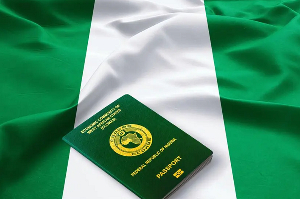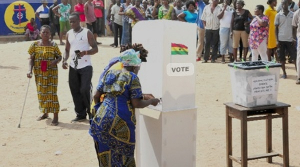Soccer News of Thursday, 6 December 2001
Source: dAILY sOCCER
African Nations Cup Preview - Mali 2002
January will see the start of the 23rd African Nations Cup in Mali (January 19-February 10). Several national teams will begin the competition with freshly appointed managers. The hosts, Mali, called on the services of Polish manager, Henri Kaspercak in October after his spell in the United Arab Emirates. A set of disappointing results had led to the sacking of his Italian predecessor, Romano Mate.
Despite Frenchman Pierre Lechantre's success with Cameroon in the 2000 African nation's cup, he was replaced by the German, Winfried Schaffer in September. There is a new face at the helm of the Tunisian national team as well with another Frenchman, Henri Michel replacing the Italian, Francesco Scoglio. Michel previously managed Cameroon (1993-4) and drove the Morrocan national team (1996-2000) to two successful World Cup qualification campaigns.
Burkina Faso have appointed the Argentinian, Oscar Fullone to replace the local duo of Sidiki Diarra and Joseph Kabore. Fullone has become well-accustomed to the African continent. He managed ASEC between 1981-3 and went on to coach Raja of Casablanca in Morocco during 1997-8 season. During his spell at Raja he claimed the league championship and the African Super-cup in 1999 and 2000. With the exception of Algeria (Rabah Madjer), the Ivory Coast (Lama Bamba), Ghana (Fred Osam Duodu), Egypt (Mahmoud-el Gouhary), Nigeria (Amodu Shuaibu) and Togo (Tchanile Banna) all the other competitors will be led by foreign managers. Historically, the statistics read that 13 previous winners were managed by foreign coaches, in comparison to eight led by African managers.
Here is a reminder of the teams who will battle it out for next year's African Nation's Cup,
Group A: Mali, Liberia, Nigeria, Algeria.
Group B: Burkina Faso, Ghana, Morocco, South Africa.
Group C: Cameroon, the Ivory Coast, Togo, RDC.
Group D: Senegal, Tunisia, Egypt, Zambia.
The hosts: Mali Bordered to the North by Algeria, to the South by Burkina Faso, the Ivory Coast and Guinea and to the West by Mauritania and Senegal, Mali is at the centre of diverse empires and civilizations. The country is divided into 8 regions, namely: Kayes, Koulikoro, Sikasso, Segou, Mopti, Tombouctou, Gao and Kidal and is crossed by two major rivers, the Niger and the Senegal. Mali which will compete in its 3rd Nations Cup will be aiming to make a major impact. Its best performance was in Yaounde 72 when it lost the final to Congo, while In Tunisia 94, it suffered semi-final defeat to Zambia.
The present national team is largely based on the side that competed in the junior World Cup in Nigeria 1999. That particular Mali side finished third in the competition. Several of the Mali selection play for European clubs, while of that group two in particular carry the hopes of a whole people.
Seydou Keita, who presently plays for French first division outfit, Lorient was the best player at the Junior world cup. Pundits have argued that he will become the big star of the Malian football for the coming years. At 22 years of age, he is the playmaker of the Mali eagles, possessing wonderful ball-control and beautiful technique. Mahamadou Dissa is also 22 years of age and also plays in France with second division Niort. He was the best striker for Mali in 1998, with 14 goals and was the top scorer at the Junior World Cup, with 5 goals. With this duo, Mali could have a major say in what happens in the African Nations Cup.
Probable Mali line-up: Mahamoudou Sidib?, Boubacar Diarra, S?kou Berth?, Adama Coulibaly, Abdoulaye Camara, Sadio Tour?, Mamadou Bakayoko, Seydou K?ita, Mahamoudou Dissa, Yaya Dissa, Dramane Coulibaly.
The favourites: Nigeria, Cameroon, Ghana, Senegal.
Nigeria
For several years now, Nigeria have been renowned as one of the best teams on the African continent. Although their World Cup draw offered them few favours (they were paired with Argentina. England and Sweden), it would also be unwise to immediately rule them out of contention in that competition.Nigeria won the African nations cup on two occasions ('80, '94), and were four times beaten finalist ( '84, '88, '90 and 2000 ). It is the only team on the continent that can boast two high-quality sides, both of which are full of professional players. The coach Shuaibu Amodou and his assistant Stephen Keshi know that they must deal with the expectations and pressures of being installed as the favourites for Mali 2002. Stars like Okocha, Kanu, Finidi, Oliseh, West and Babayaro, will play in the championships, while a new breed of talent includes Pascal Karigb?, Victor Agali, Joseph Yobo, Furo Iy?meni .
Ghana
Ghana have some major scores to settle. The Four times winners of the African nations cup last won the competition in 1982 and despite producing a continual flow of promising young players, they are in danger of drifting to the periphery of the major African footballing names.Again on this occasion Ghana will send a strong team including the likes of Akonnor, Addo, Kuffour, PreKo, Barnes and Kingston. The team coached by Fred Osam Duodu, will count, above all, on Sam Johnson, Kuffour, Alex Nyarko, Stephen Appiah, Akunnor, Peter ofori Quaye, Yaw Prekob and Ismael Addo,
Cameroon
Cameroon are the defending champions, and will undoubtedly be up there with the favourites, hoping to hold onto their crown. Their new German coach, Winfried Shaffer inherits a selection with strong potential. On paper perhaps only Nigeria can beat a team that boasts Kalla, Song, Mboma, Eto, Fo? and Olemb?. But several African pundits have noticed a frightening trend for the central African nation i.e. Cameroon always seem to perform badly in a World Cup year.Senegal
Senegal are well and truly the most surprising team of the last two years. An absentee from CAN 96 and 98, the Lions returned to the highest level, in Burkina Faso 2000. Since 2000, Senegal have only gone from strength to strength and successfully managed to qualify for the World Cup in Korea and Japan (where they will meet defending champions France in the opening game).Bruno Metsu, who succeeded Peter Schnittger as manager, successfully revolutionised the Senegal team. The 47-year-old, Frenchman began coaching in France with the club teams, Valenciennes, Nice, Valencia, Sedan and Beauvais, before eventually making his way to the African continent in October, 2000. The French connection is deeply rooted in his side (Aliou Ciss?, Henri Camara, Khalilou Fadiga, Diouf, Pape Saar, Tony Siva, etc...) and the Lions will undoubtedly be one of the sides to beat in Mali.
Despite being far from a footballing household name, Senegal were able to escape from six years in the doldroms, and qualify for their first ever World Cup. By this historic act, all echelons of Senegalese football felt honoured. Major figures in Senegalese football over the last few decades such as Jules Bocande, Thierno Youn, Boubacar Saar, Cheick Seick, Roger Mendy, Oumar S?ne can be proud of their heirs in Henri Camara, Salif Diao, Pape Saar, Malik Diop, Aliou Ciss?, Ousseni Diouf, Ferdinand Coly, Khalilou Fadiga Tomy Sylva and Omar Daf.
Probable Senegal line-up: Tony Silva, Omar Daf, Aliou Ciss?, Ferdinand Coly, Lamine Diatta, Pape Saar, Salif Diao, Malik Diop, Henri Camara.
The statistics
Egypt hold the record for the number of appearances in the Nations Cup with 18. They are followed by the Ivory Coast (15), Ghana (14), RDC and Nigeria (13), Cameroon (12), Zambia (11), Tunisia and Morocco (10), Burkina Faso (5), South Africa and Togo (4), Mali (3) and Liberia (2). Gabun (1996), Lybia (1982) and Uganda (1978) have only qualified once, while the likes of Benin, Burundi, the Central African Republic, Lesotho, Maurinania, Niger, Chad, Rwanda have never appeared in the competition.Egypt (1957, 1959, 1986, 1998) also top the list of honours for the number of wins together with Ghana (1963, 1965, 1978 and 1982). Defending champions Cameroon have won the title on three occasions (1984, 1988, 2000).
Tunisia will host the 2004 tournament, while Gabun, Benin and Togo are the candidates to host the 2006 African Nations Cup.


